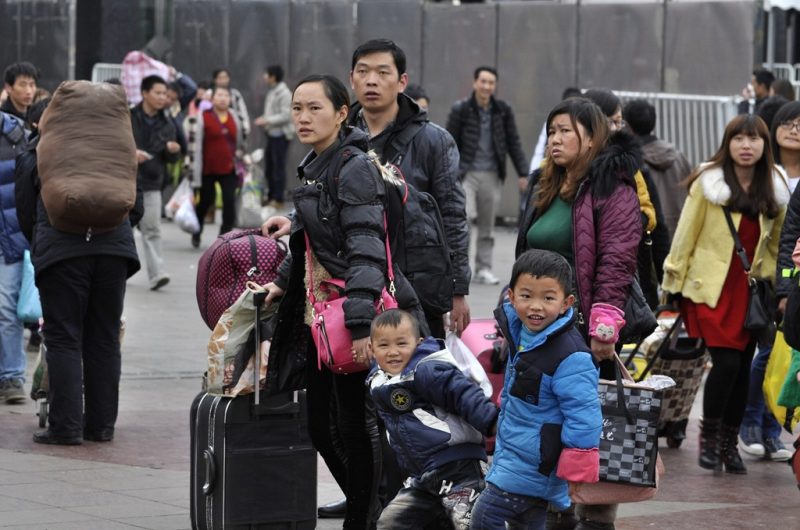While Covid is raging in Beijing and other big cities, Chinese authorities are still hoping to protect rural communities when millions of city-dwellers have their first holidays in years next month.
The country’s sudden move last week to start open up and to live with the coronavirus, following historic protests against President Xi Jinping’s signature ‘zero-Covid’ policy ramped up concern that China is unprepared for the increasing wave of infections.
China reported just 2,157 new Covid infections for December 15 but the official figures are wildly at odds with reality because mass testing has been dropped. Cities like Beijing now have long queues outside fever clinics and empty pharmacy shelves are a common sight.
There is particular concern about China’s hinterland in the run-up to local Lunar New Year holidays starting on January 22.
Rural areas are likely to be inundated with travellers returning to their hometowns and villages, which have had little exposure to the virus during the three years since the pandemic erupted.
China’s National Health Commission said on Friday it was boosting vaccinations and building stocks of ventilators, essential drugs, and test kits in rural areas. It also advised travellers to reduce contact with elderly relatives.
ALSO SEE:
China Rushing Out Covid Boosters Amid Warning of Deadly Pivot
Free to Travel Again
Mainland China’s international borders remain largely shut, but recent decisions to abandon testing prior to domestic travel and disable apps that tracked people’s journey history have freed up people to move around the country.
However, officials in Henan, one of China’s most populous provinces, have cancelled all holidays for healthcare staff until the end of March to ensure “a smooth transition” as Covid restrictions ease, state media reported late on Thursday.
Multiple cities across the country of 1.4 billion people also opened new vaccination sites to encourage the public to take booster shots, the state-run Global Times newspaper reported.
Hong Kong on Friday said its adult residents could get a fifth shot, with infections there on the up in recent months.
“Go all out” was the message from China’s state asset regulator in a statement late on Thursday that urged government-owned drugmakers to ensure supplies of Covid-related medicines to meet “the rapid increase” in demand.
‘Everyone Will Get it’
Thanks to the government’s previously uncompromising controls, China got off lightly compared with many other countries during the pandemic over the past three years, but now many Chinese are resigned to catching the virus at some point.
“Everyone will get it, I guess,” a 29-year-old Beijing resident who requested to be identified by her surname Du, said on a street in Beijing.
Analysts fear China will pay a price for letting the virus rapidly rip through a population that lacks “herd immunity” and has low vaccination rates among the elderly and vaccines seen as less effective than those in the West.
That has dented prospects for near-term growth, even if the opening up should eventually revive China’s battered economy.
JPMorgan on Friday revised down its expectations for China’s 2022 growth to 2.8%, which is well below China’s official target of 5.5% and would mark one of its worst performances in almost half a century.
China is bracing for “a transitional pain period”, analysts at the bank said, adding they expected infections to spike after the Lunar New Year before the economy starts to recover in mid-2023.
President Xi, his ruling Politburo and senior government officials are holding their annual Central Economic Work Conference this week, sources said.
China’s top state planning body, the National Development and Reform Commission, said “arduous efforts” are needed to sustain the recovery in growth due to an adverse external environment and the global economy’s loss of momentum.
China’s yuan firmed on Friday as traders remained optimistic that more measures to support the economy would emerge from the conference.
- Reuters with additional editing by Jim Pollard
ALSO SEE:
US Gets Full Access to Audit Chinese Firms Listed in the US
US Blacklists China Firms in AI Chip Sector, Russia Suppliers
US Fears China Flooding Global Market With Older Chips
























